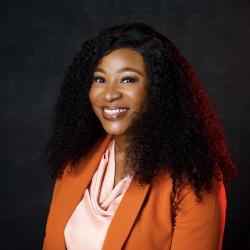Introduction
Marilena Lazzarini, who helped create Sao Paulo's first government consumer agency, is now working to build a model private consumer defense group. Success in South America's biggest business center, enormously important in itself, will also encourage others across the continent to follow.
The New Idea
Marilena's decade of working on consumer issues in the Sao Paulo government taught her a great deal about the problems confronting consumers, not least the difficulty of attacking them from within government in the face of shifting political imperatives. Effective consumer protection, including reliable government response, requires sustained, independent citizen initiative.Marilena responded to the last few years' disruptions--inflation shocks, debt payment crises, wide political swings--by bringing together a group of lawyers, scientists, and former government colleagues to create the Brazilian Institute for Defending the Consumer (IDEC). Although they founded IDEC primarily to research product quality and safety, the group soon decided it could be more effective (and self-financing) if it also took up major consumer issues directly, especially in court.IDEC has subsequently demonstrated how to use collective suits to important direct and precedent-setting effect. She and her colleagues have won a suit against one of Brazil's largest health insurance companies, which was found guilty of illegally raising its already high premiums. IDEC lawyers have also fought to enforce an existing legal ban on the carcinogenic hormone DES, which had nonetheless been widely used by Brazilian cattle ranchers to fatten their stock. Most recently, IDEC took up the cause of some 300,000 residents of the state of Sao Paulo who had paid the state phone company for telephones only to languish indefinitely on waiting lists.These highly publicized successes and Marilena's credibility are bringing ever more people to IDEC's doorstep. Marilena reports that "IDEC is called upon to act on every consumer issue in the state of Sao Paulo and increasingly on the national level as well."The challenge now is to turn these successes and this demand into an institution that will last, an institution that will permanently improve Brazil's marketplace by giving consumers the information and voice to insist on better products and services. A successful and especially a financially sustainable institution will quickly be copied -both in other parts of the country and by groups specializing in a particular area of concern, be it medical care or airline service. Marilena hopes such a multiplication will be her biggest impact.
The Problem
Brazil's consumers have for years been paying for products and services of often-poor quality and safety. Their homes contain shoddy, defective, sometimes even toxic building materials. Their food contains unknown but often dangerous contamination from Brazilian agriculture's heavy, ineffectively regulated use of pesticides and other chemicals. Much of this food, moreover, has never been rigorously quality checked - scandals such as the widespread contamination of the milk supply with fecal matter and of canned goods with lead are all too common.There are many causes for this. Trade restrictions that limit foreign competition weaken the consumers' leverage. Poverty, a weak educational system, and the direct deterrent of two decades of military rule have conspired to keep citizens quietly passive, to prevent them from organizing to press for improvement. Even the idea that consumers have rights is relatively new in Brazil.
The Strategy
Marilena is following a several-part strategy.First, she's continuing to take up carefully selected collective suits. (She now has many in process. IDEC is representing 800 complainants among these cases.) They're the organization's most powerful, proven tool. Given this fact, she's trying to ensure that the new national consumer protection legislation being considered will make it easier for private groups like hers to bring and win such suits.Second, she hopes IDEC will expand its consumer testing and evaluation program. By conducting comparative quality and safety tests of different products and disseminating the results through the media and "Consumer, Inc.," the group's bimonthly bulletin, IDEC will bring a new discipline to the market, and hopefully also build its membership base.Third, and partly building on the first two thrusts, Marilena is pressing hard for IDEC to build a documentation center with information about products and consumer rights. This information would be made available widely across Brazil and internationally through ALTERNEX, a growing computer network shared by Brazilian private voluntary organizations. (These organizations have just asked Marilena to take the lead on consumer matters.)Fourth, Marilena feels that it is essential for IDEC to become a permanent, more professionally staffed, financially stable (and independent of conflicts) institution - hence her persistent focus on building up a membership base.Marilena hopes IDEC's example will stimulate the creation of independent consumer rights associations all over Brazil. They'll have to define their own activities in the light of local needs and demands. But because she doesn't want other groups to have to reinvent the wheel, she will actively share her experiences and solutions and also help organize a broader exchange among those working in the field.
The Person
Now 41, Marilena was born and raised in the state of Sao Paulo. Although she dreamed of studying medicine, the local agronomy college was an easier financial burden for her family to shoulder. Marilena graduated from the program in 1971 and took a job with the state Secretary of Agriculture, where she was responsible for food distribution and quality control. At that and subsequent government jobs she became interested in reducing the distance between food producers and consumers. And like other young agronomists, she became increasingly concerned about the impact that new technologies and indiscriminate pesticide use would have on small producers, consumers, and the environment.Marilena was part of the group that established PROCON, Brazil's first governmental consumer agency, in 1976. From 1983 to 1986 she served as its director. She has been president of IDEC since co-founding it in 1987.




